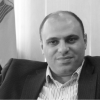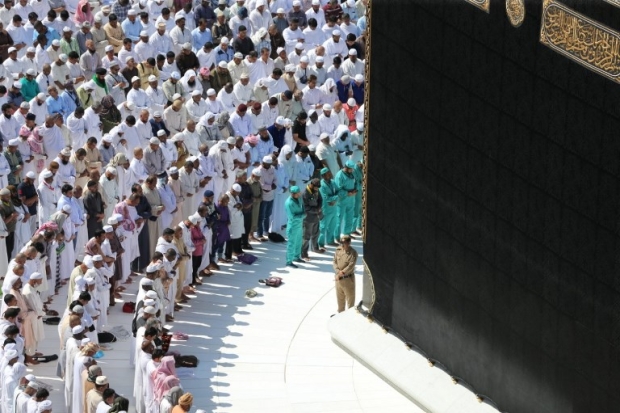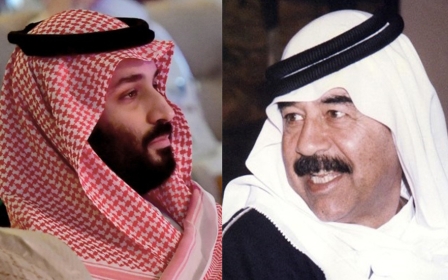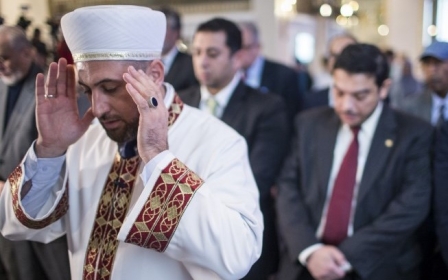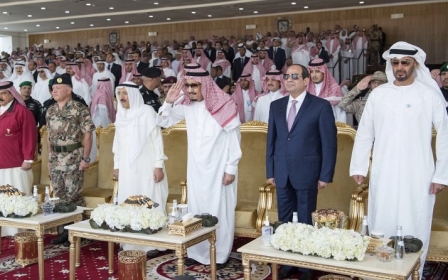The Saudi regime does not represent Muslims
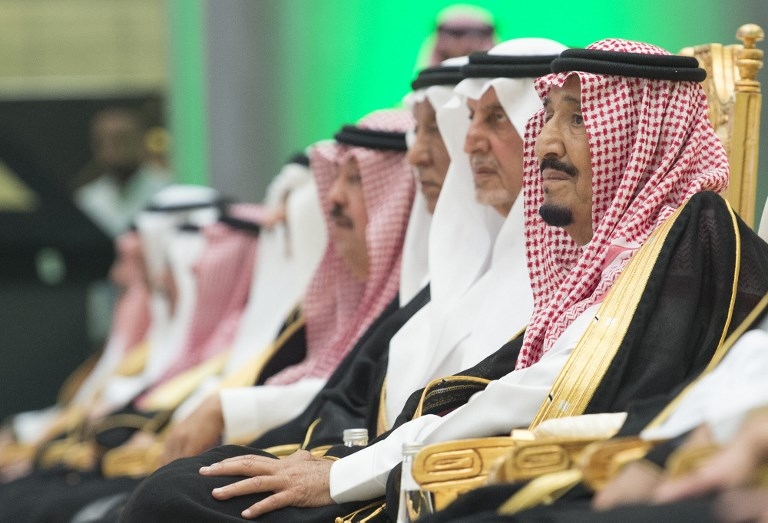
The Middle East is undergoing the most turbulent time in its history since the collapse of the Ottoman Empire and the rise of nation states.
In 2011, we witnessed the fall of autocratic regimes in Tunisia, Egypt, Yemen and Libya, as well as the start of a civil war in Syria. We watched these regimes fight brutally to cling to power, with zero tolerance for those who participated in the first wave of the Arab Spring.
The late King Abdullah saw the danger facing the Saudi monarchy and understood that it was a matter of time until he faced similar calls for democracy, freedom and equality. To ward this off, Abdullah offered economic bribes to the people by increasing salaries and public spending throughout the kingdom.
Ruthless anti-revolution camp
On top of this, with the aid of Crown Prince Mohammed Bin Zayed in the UAE, he led a ruthless new anti-revolution camp in the Gulf. Together, they helped Egyptian General Abdel Fattah al-Sisi plot and launch a coup d’etat against the elected government of Mohamed Morsi.
Saudi Arabia offered billions of dollars in aid to Sisi, who in turn labelled the Muslim Brotherhood - of which Morsi was a member - a terrorist organisation, and mobilised state media to launch a negative PR campaign against the very notion of political Islam. Sisi also falsely claimed that the Brotherhood was driving radicalisation in the region.
Now, with the abhorrent murder of Jamal Khashoggi - a proud Saudi and unmatched ambassador for his nation - the world has finally woken up to the thuggery that has beset this nation for decades
Egypt at the time recruited countless lobby groups to commit the Obama administration into complete non-committal over the coup. The shameful US silence over the massacre of hundreds of protesters in Rabaa Square signalled that it had succumbed to these lobbying efforts - not realising at the time that by fighting and oppressing political Islam, it was shooting itself in the foot.
Jamal Khashoggi, murdered two months ago in the Saudi consulate in Istanbul, once said that the Saudi ruling family should not fight with the Muslim Brotherhood, but rather partner with them. “Saudi Arabia … is the mother and father of political Islam," he said.
The real meaning of Islam
And why not? The al-Saud family has been governing for almost a century now under the umbrella of Islam, saying they are applying Islamic Sharia and ruling by the Quran.
Through the huge oil wealth they have accrued since the Second World War, their Wahhabism relied on a principle of being loyal and following orders - an insidious tenet of Islam that they actively spread across the region and internationally. It never put community or the common good first.
Clearly, the Saudi regime never wanted to practice the real meaning and virtues of Islam. Princes were never questioned on their actions, laws were always applied selectively, and minorities - as well as non-Saudis - suffered discrimination. People had no real input or participation in government.
The Saudi regime was probably correct in thinking that the Arab Spring was a threat, especially when the Muslim Brotherhood came to power. If the Brotherhood was successful in applying a democratic regime that brought welfare to the people, then the first to be challenged to apply the same rules would be the monarchies that also acted in the name of Islam. If people were to revolt and question their rulers, the first to suffer would be the increasingly febrile monarchies of the region.
Moral vacuum
Now, with the abhorrent Khashoggi murder - a proud Saudi and unmatched ambassador for his nation - the world has finally woken up to the thuggery that has beset this nation for decades. The CIA has concluded that the crown prince was involved in Khashoggi’s murder, leaving the de facto ruler with very few options.
This tragic state of affairs points to a moral vacuum at the heart of the Saudi leadership. Even in a region where democracy has been so roundly crushed by family-run autocracies and foreign-backed military despots such as Sisi, the true face of Saudi Arabia must not be easily forgotten.
If the reckless prince holds on to power, it will lead to further instability among a populace of generally peace-loving people who know he does not represent them, or their religion.
The stink of hypocrisy is obvious from the Saudi elite - a family that uses the veil of religious piety for its own political ends, but whose actions now so clearly show a complete disconnect from the peace-loving followers of a great religion.
- Yehia Hamed is Egypt’s former investment minister. He served in the democratically elected government of Mohamed Morsi, which was overthrown in a coup in 2013.
The views expressed in this article belong to the author and do not necessarily reflect the editorial policy of Middle East Eye.
Photo: Saudi King Salman attends the inauguration of a new high-speed railway linking Mecca and Medina, Islam’s holiest cities, in Jeddah on 25 September (Bandar al-Jaloud/Saudi Royal Palace/AFP).
This article is available in French on Middle East Eye French edition.
Middle East Eye propose une couverture et une analyse indépendantes et incomparables du Moyen-Orient, de l’Afrique du Nord et d’autres régions du monde. Pour en savoir plus sur la reprise de ce contenu et les frais qui s’appliquent, veuillez remplir ce formulaire [en anglais]. Pour en savoir plus sur MEE, cliquez ici [en anglais].


